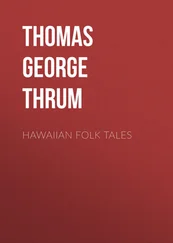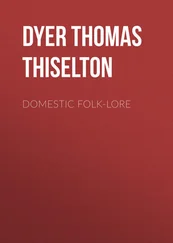Thomas Dyer - Folk-lore of Shakespeare
Здесь есть возможность читать онлайн «Thomas Dyer - Folk-lore of Shakespeare» — ознакомительный отрывок электронной книги совершенно бесплатно, а после прочтения отрывка купить полную версию. В некоторых случаях можно слушать аудио, скачать через торрент в формате fb2 и присутствует краткое содержание. Жанр: foreign_antique, foreign_prose, на английском языке. Описание произведения, (предисловие) а так же отзывы посетителей доступны на портале библиотеки ЛибКат.
- Название:Folk-lore of Shakespeare
- Автор:
- Жанр:
- Год:неизвестен
- ISBN:нет данных
- Рейтинг книги:4 / 5. Голосов: 1
-
Избранное:Добавить в избранное
- Отзывы:
-
Ваша оценка:
- 80
- 1
- 2
- 3
- 4
- 5
Folk-lore of Shakespeare: краткое содержание, описание и аннотация
Предлагаем к чтению аннотацию, описание, краткое содержание или предисловие (зависит от того, что написал сам автор книги «Folk-lore of Shakespeare»). Если вы не нашли необходимую информацию о книге — напишите в комментариях, мы постараемся отыскать её.
Folk-lore of Shakespeare — читать онлайн ознакомительный отрывок
Ниже представлен текст книги, разбитый по страницам. Система сохранения места последней прочитанной страницы, позволяет с удобством читать онлайн бесплатно книгу «Folk-lore of Shakespeare», без необходимости каждый раз заново искать на чём Вы остановились. Поставьте закладку, и сможете в любой момент перейти на страницу, на которой закончили чтение.
Интервал:
Закладка:
“It faded on the crowing of the cock.
Some say, that ever ’gainst that season comes
Wherein our Saviour’s birth is celebrated,
The bird of dawning singeth all night long.
And then, they say, no spirit dares stir abroad;
The nights are wholesome; then no planets strike,
No fairy takes, nor witch hath power to charm,
So hallow’d and so gracious is the time.”
In short, there is a complete prostration of the powers of darkness; and thus, for the time being, mankind is said to be released from the influence of all those evil forces which otherwise exert such sway. The notion that spirits fly at cock-crow is very ancient, and is mentioned by the Christian poet Prudentius, who flourished in the beginning of the fourth century. There is also a hymn, said to have been composed by St. Ambrose, and formerly used in the Salisbury Service, which so much resembles the following speech of Horatio (i. 1), that one might almost suppose Shakespeare had seen it: 170 170 See Ibid.
“The cock, that is the trumpet to the morn,
Doth with his lofty and shrill-sounding throat
Awake the god of day; and, at his warning,
Whether in sea or fire, in earth or air,
The extravagant and erring spirit hies
To his confine.”
This disappearance of spirits at cock-crow is further alluded to (i. 2): 171 171 See Brand’s “Pop. Antiq.,” 1849, vol. ii. pp. 51-57; Hampson’s “Medii Œvi Kalendarium,” vol. i. p. 84.
“the morning cock crew loud,
And at the sound it shrunk in haste away,
And vanished from our sight.”
Blair, too, in his “Grave,” has these graphic words:
“the tale
Of horrid apparition, tall and ghastly,
That walks at dead of night, or takes his stand
O’er some new-open’d grave, and, strange to tell,
Evanishes at crowing of the cock.”
This superstition has not entirely died out in England, and a correspondent of “Notes and Queries” 172 172 1st series, vol. iii. p. 404.
relates an amusing legend current in Devonshire: “Mr. N. was a squire who had been so unfortunate as to sell his soul to the devil, with the condition that after his funeral the fiend should take possession of his skin. He had also persuaded a neighbor to be present on the occasion of the flaying. On the death of Mr. N. this man went, in a state of great alarm, to the parson of the parish, and asked his advice. By him he was told to fulfil his engagement, but he must be sure and carry a cock into the church with him. On the night after the funeral the man proceeded to the church, armed with the cock, and, as an additional security, took up his position in the parson’s pew. At twelve o’clock the devil arrived, opened the grave, took the corpse from the coffin, and flayed it. When the operation was concluded, he held the skin up before him and remarked, ‘Well, ’twas not worth coming for after all, for it is all full of holes!’ As he said this the cock crew, whereupon the fiend, turning round to the man, exclaimed, ‘If it had not been for the bird you have got there under your arm, I would have your skin too!’ But, thanks to the cock, the man got home safe again.” Various origins have been assigned to this superstition, which Hampson 173 173 “Medii Œvi Kalendarium,” vol. i. p. 85.
regards as a misunderstood tradition of some Sabæan fable. The cock, he adds, which seems by its early voice to call forth the sun, was esteemed a sacred solar bird; hence it was also sacred to Mercury, one of the personifications of the sun.
A very general amusement, up to the end of the last century, was cock-fighting, a diversion of which mention is occasionally made by Shakespeare, as in “Antony and Cleopatra” (ii. 3):
“His cocks do win the battle still of mine,
When it is all to nought.”
And again Hamlet says (v. 2):
“O, I die, Horatio;
The potent poison quite o’er-crows my spirit” —
meaning, the poison triumphs over him, as a cock over his beaten antagonist. Formerly, cock-fighting entered into the occupations of the old and young. 174 174 Roberts’s “Social History of Southern Counties of England,” 1856, p. 421; see “British Popular Customs,” 1876, p. 65.
Schools had their cock-fights. Travellers agreed with coachmen that they were to wait a night if there was a cock-fight in any town through which they passed. When country gentlemen had sat long at table, and the conversation had turned upon the relative merits of their several birds, a cock-fight often resulted, as the birds in question were brought for the purpose into the dining-room. Cock-fighting was practised on Shrove Tuesday to a great extent, and in the time of Henry VII. seems to have been practised within the precincts of court. The earliest mention of this pastime in England is by Fitzstephens, in 1191. Happily, nowadays, cock-fighting is, by law, a misdemeanor, and punishable by penalty. One of the popular terms for a cock beaten in a fight was “a craven,” to which we find a reference in the “Taming of the Shrew” (ii. 1):
“No cock of mine; you crow too like a craven.”
We may also compare the expression in “Henry V.” (iv. 7): “He is a craven and a villain else.” In the old appeal or wager of battle, 175 175 Nares’s “Glossary,” 1872, vol. i. p. 203.
in our common law, we are told, on the authority of Lord Coke, that the party who confessed himself wrong, or refused to fight, was to pronounce the word cravent , and judgment was at once given against him. Singer 176 176 Singer’s “Shakespeare,” 1875, vol. ix. p. 256; Halliwell-Phillipps’s “Handbook Index to Shakespeare,” p. 112.
says the term may be satisfactorily traced from crant , creant , the old French word for an act of submission. It is so written in the old metrical romance of “Ywaine and Gawaine” (Ritson, i. 133):
“Or yelde the til us als creant.”
And in “Richard Cœur de Lion” (Weber, ii. 208):
“On knees he fel down, and cryde, crêaunt.”
It then became cravant , cravent , and at length craven .
In the time of Shakespeare the word cock was used as a vulgar corruption or purposed disguise of the name of God, an instance of which occurs in “Hamlet” (iv. 5): “By cock, they are to blame.” This irreverent alteration of the sacred name is found at least a dozen times 177 177 Dyce’s “Glossary to Shakespeare,” p. 85.
in Heywood’s “Edward the Fourth,” where one passage is,
“ Herald. Sweare on this booke, King Lewis, so help you God,
You mean no otherwise then you have said.
King Lewis. So helpe me Cock as I dissemble not.”
We find, too, other allusions to the sacred name, as in “cock’s passion,” “cock’s body;” as in “Taming of the Shrew” (iv. 1): “Cock’s passion, silence!” A not uncommon oath, too, in Shakespeare’s time was “Cock and pie” — cock referring to God, and pie being supposed to mean the service-book of the Romish Church; a meaning which, says Mr. Dyce, seems much more probable than Douce’s 178 178 “Illustrations of Shakespeare,” 1839, p. 290.
supposition that this oath was connected with the making of solemn vows by knights in the days of chivalry, during entertainments at which a roasted peacock was served up. It is used by Justice Shallow (“2 Henry IV.,” v. 1): “By cock and pye, sir, you shall not away to-night.” We may also compare the expression in the old play of “Soliman and Perseda” (1599): “By cock and pye and mousefoot.” Mr. Harting 179 179 “Ornithology of Shakespeare,” p. 171.
says the “Cock and Pye” ( i. e. , magpie) was an ordinary ale-house sign, and may have thus become a subject for the vulgar to swear by.
Интервал:
Закладка:
Похожие книги на «Folk-lore of Shakespeare»
Представляем Вашему вниманию похожие книги на «Folk-lore of Shakespeare» списком для выбора. Мы отобрали схожую по названию и смыслу литературу в надежде предоставить читателям больше вариантов отыскать новые, интересные, ещё непрочитанные произведения.
Обсуждение, отзывы о книге «Folk-lore of Shakespeare» и просто собственные мнения читателей. Оставьте ваши комментарии, напишите, что Вы думаете о произведении, его смысле или главных героях. Укажите что конкретно понравилось, а что нет, и почему Вы так считаете.












